Chaffinch, Vink, Buchfink, Tentilhão-comum, Pinzón vulgar
Spotted on our property Monte Horizonte in the Alentejo region of Portugal today. Chaffinch sound
The Chaffinch, Fringilla coelebs, is a small passerine bird in the finch family Fringillidae, also called a spink. Its large double white wing bars, white tail edges and greenish rump easily identify this 14–16 cm long species. The breeding male is unmistakable, with his reddish underparts and a blue-grey cap. The female is drabber and greener, but still obvious.
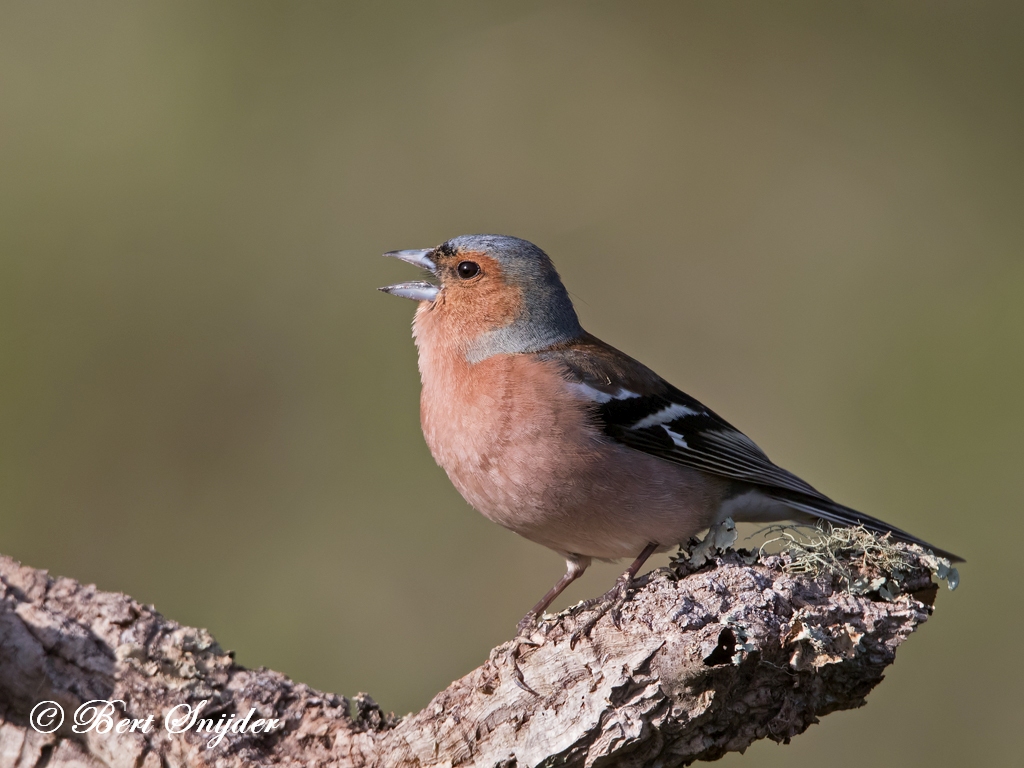
More photos at the bottom of this page:
This bird is widespread and very familiar throughout Europe. It is the most common finch in western Europe. Its range extends into western Asia, northwestern Africa, the Azores and Madeira. In the Canary Islands of Tenerife and Gran Canaria it coexists with its sister species, the endemic Blue Chaffinch.
It was introduced from Britain into a number of its overseas territories in the 18th and 19th centuries. In South Africa a very small breeding colony in the suburb of Camps Bay near Cape Town is the only remnant of one such introduction.
It uses a range of habitats, but open woodland is favoured, although it is common in gardens and on farmland. It builds its nest in a tree fork, and decorates the exterior with moss or lichen to make it less conspicuous. It lays about six eggs.
This bird is not migratory in the milder parts of its range, but vacates the colder regions in winter. The coelebs part of its name means “bachelor”. This species was named by Linnaeus; in his home country of Sweden, where the females depart in winter, but the males often remain. This species forms loose flocks outside the breeding season, sometimes mixed with Bramblings. This bird occasionally strays to eastern North America, although some sightings may be escapees.
The food of the Chaffinch is seeds, but unlike most finches, the young are fed extensively on insects.
The powerful song is very well known, and its fink or vink sounding call gives the finch family its English name. Males typically sing two or three different song types, and there are regional dialects too.
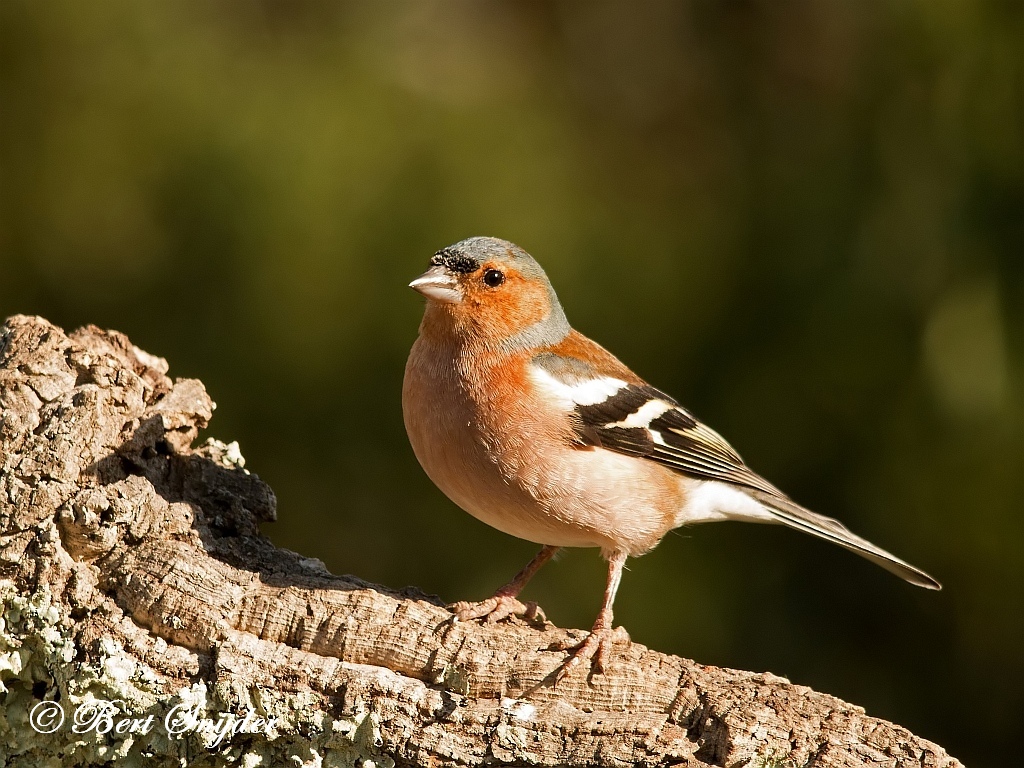
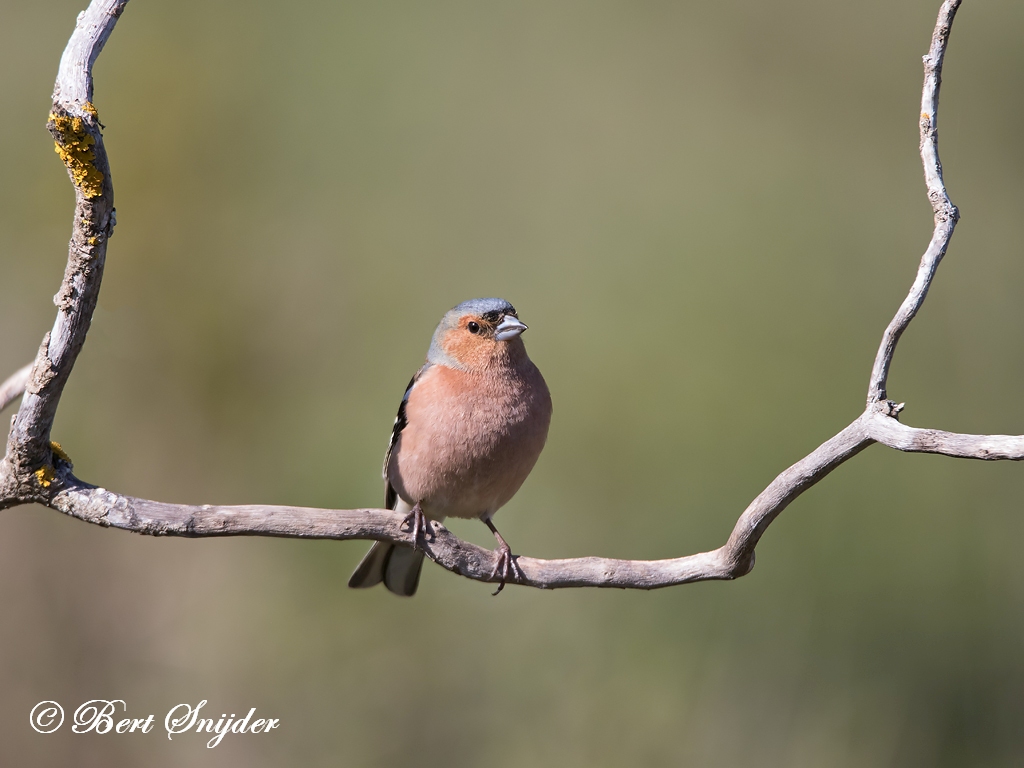
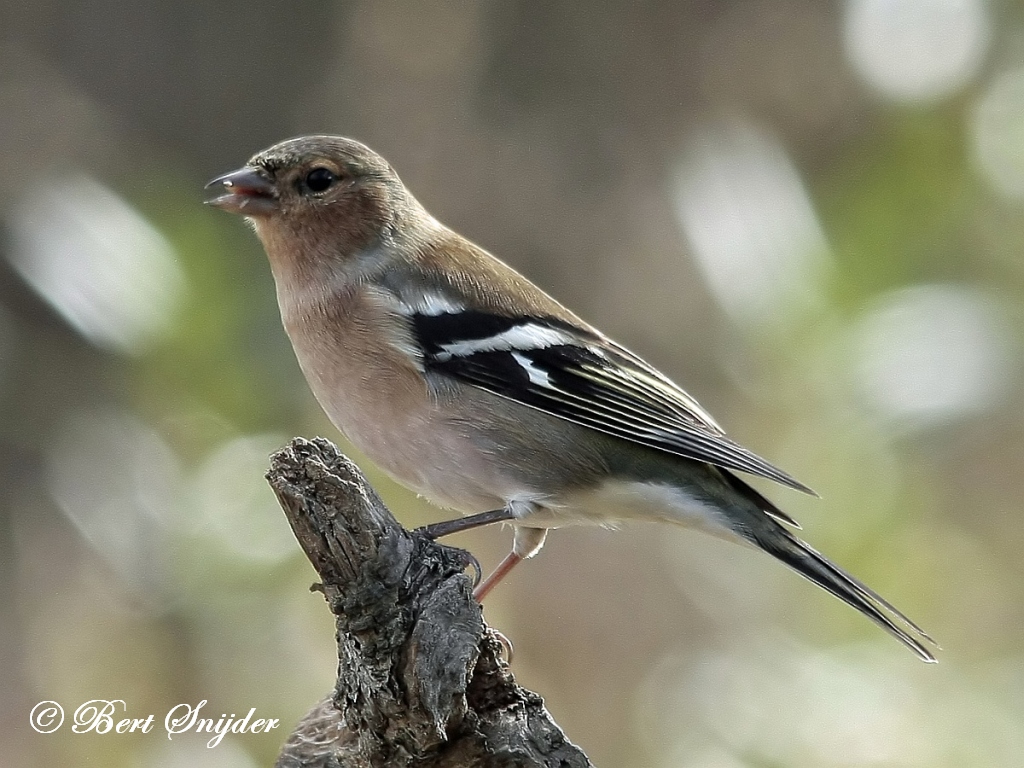
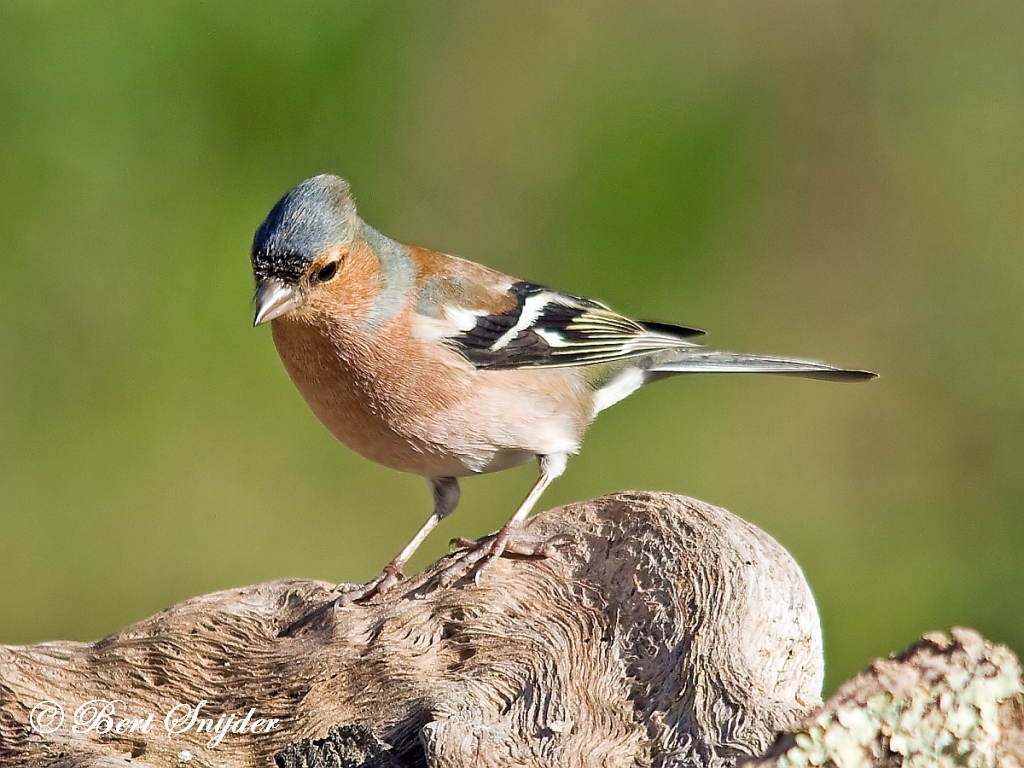
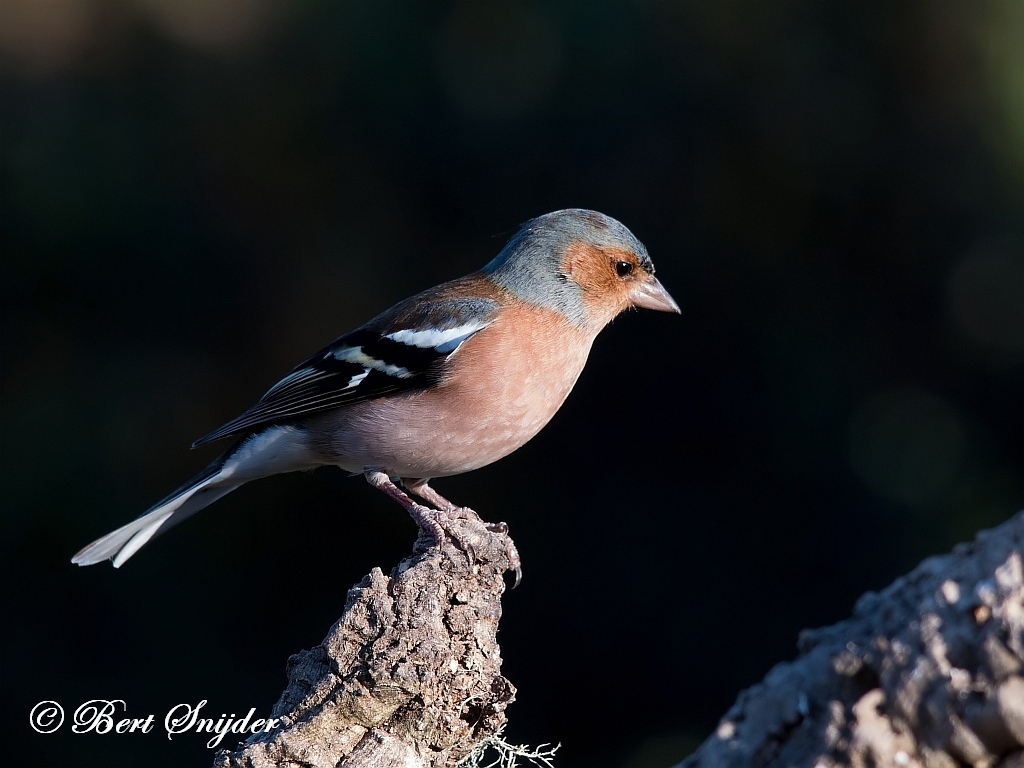
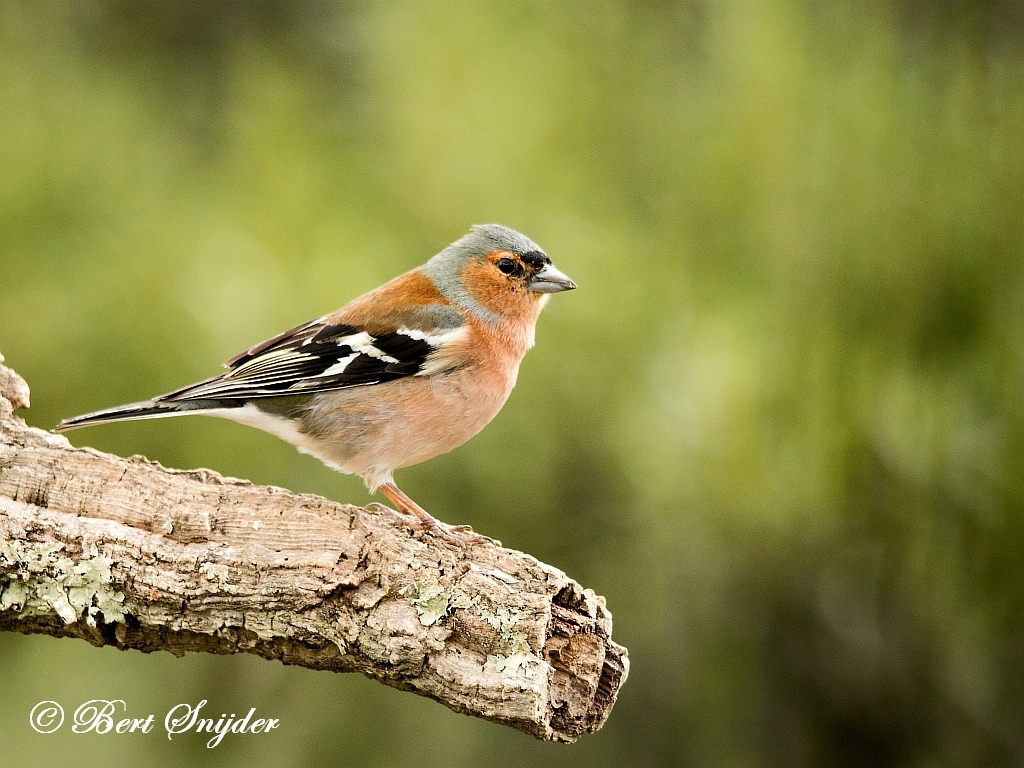
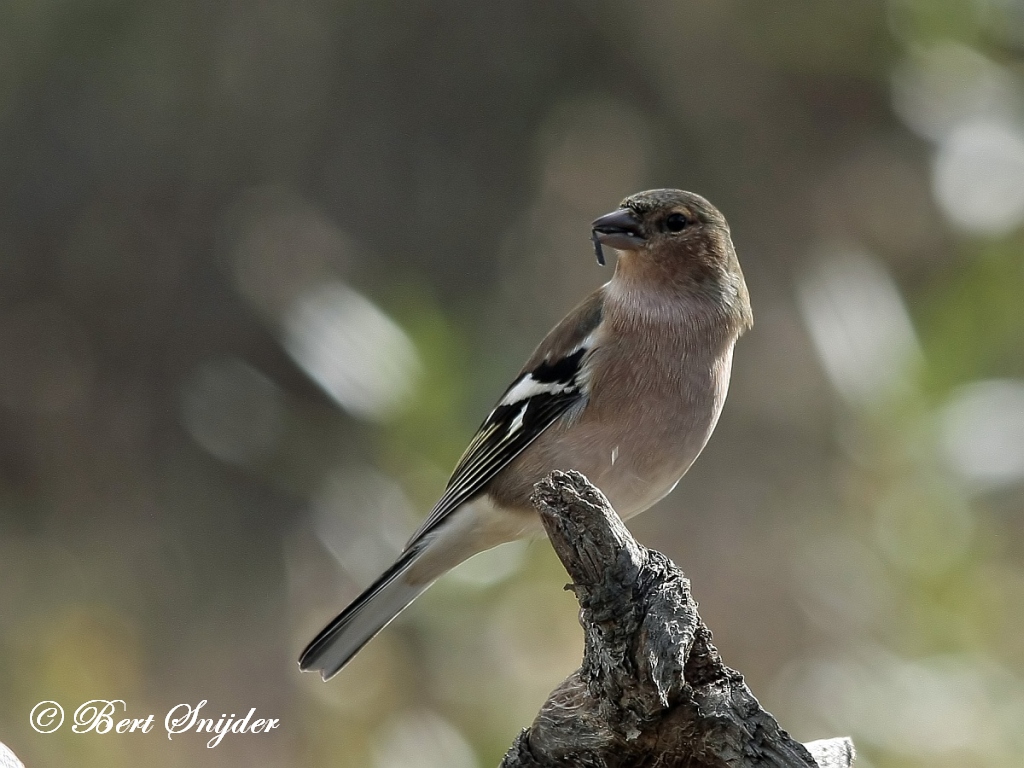
Other synonyms:
Afrikaans: Gryskoppie
Asturian: Pimpím, Pin-Pin
Breton: Ar pintig, Pint, Pintig
Catalan: Pardal d’ala blanca, Pinsà, Pinsà comú
Catalan (Balears): Pinsà
Valencian: Pardal d’ala blanca
Czech: Penkava obecná, pìnkava obecná
Welsh: Asgell arian, Asgell fraith, Asgell-arian, Binc-binc, Brig y coed, Ji-binc, Jin jin, Pia’r gwinc, Pwynt, Winc
Danish: Bogfinke
German: Buchfink, Finkenlerche
English: Chaffinch, Chaffinch Chaffinch, Common Chaffinch, Eurasian Chaffinch, European Chaffinch
Esperanto: fringo
Spanish: Gorrión molinero, Pinzón Común, Pinzon Vulgar, Pinzón vulgar
Estonian: Metsvint
Basque: Pinsà comú, Txonda arrunta, Txonta arrunt
Finnish: Peippo
Faroese: Bókfinka, Bókígða
French: Pinson des arbres
Frisian: Skelfink
Irish: Bricín beatha, Gealún cátha, Rí Rua, Ríura
Gaelic: Breacan Beithe, Bricein Beithe, Briecan Beatha
Galician: Pimpín, Pinsà comú
Manx: Ushag Veg Vreck, Ushag y Choan, Ushag y choau
Croatian: Zeba, Zeba bitkavica
Hungarian: Erdei pinty
Icelandic: Bókfinka
Italian: Fringuello, Fringuello comune
Japanese: zuaoatori, Zuao-atori
Cornish: Tynk
Latin: Fringilla coelebs
Lithuanian: ?iuldutis, Kikilis, Paprastasis kikilis, Šilagaidis
Latvian: Žube
Maltese: Sponsun
Dutch: Vink
Norwegian: Bokfink, Tvint’n, Uverspekk
Polish: zieba
Portuguese: Tentelhão-comum, tentilhão, Tentilhão-comum
Romansh: Fringhel
Russian: Zyablik
Sardinian: Lineddu, Pappadrigu, Pappatrigu, Passariargia, Tintillu, Zoni
Scots: Breacan beithe, Briecan beatha
Northern Sami: Beibboš
Slovak: pinka lesná
Albanian: Borës, Zborak, Zboraks, Zog bore
Serbian: obicna zeba
Swedish: Bofink
Travel Birdwatching Holiday Alentejo, Vacation Portugal for birders to see birds on your trip.